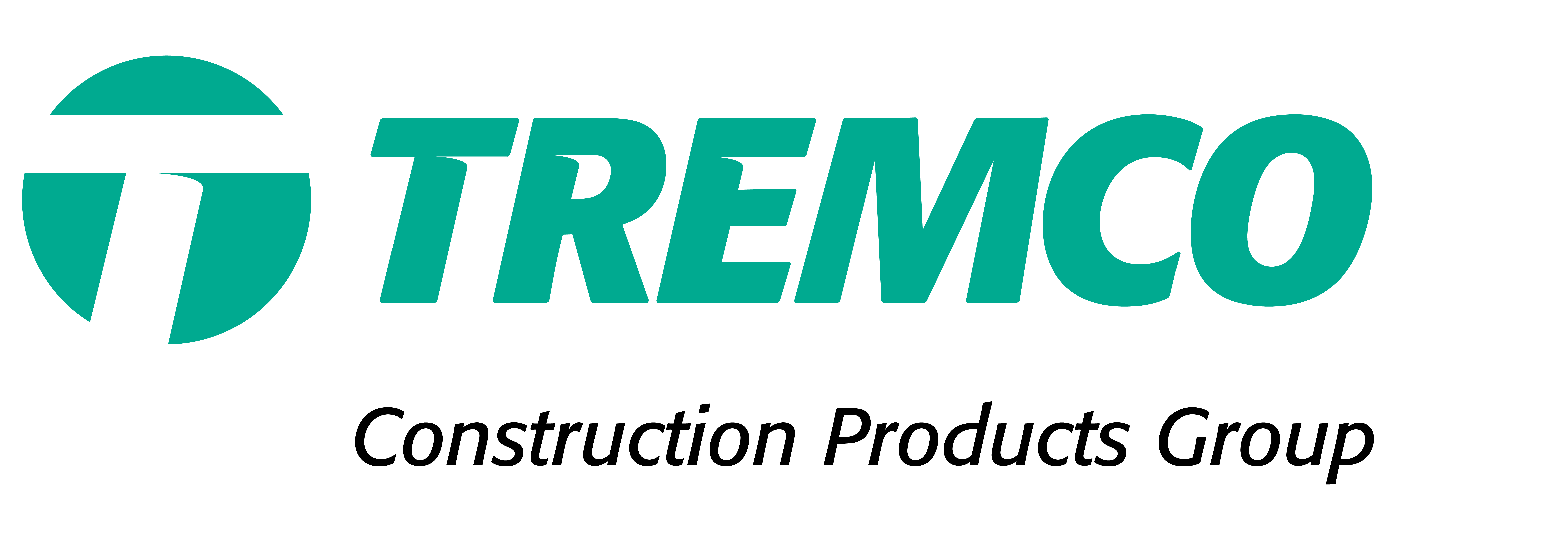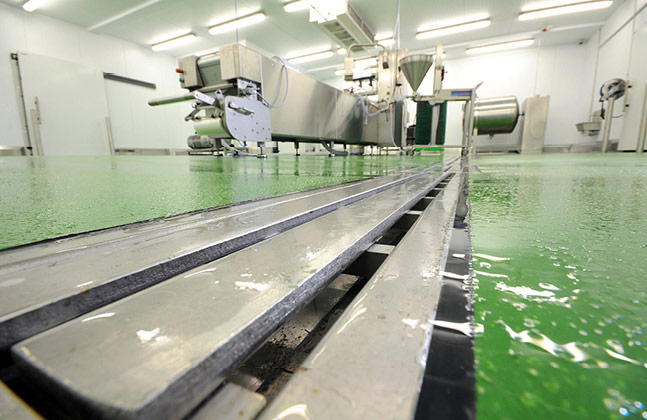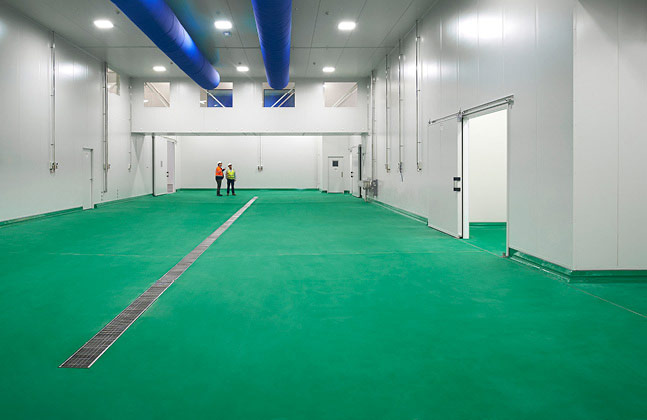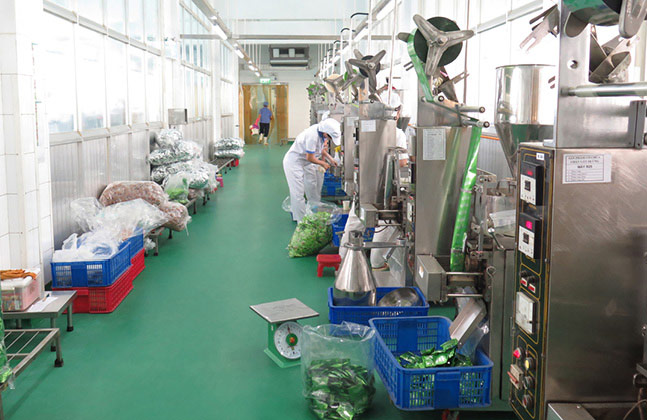The Importance of Flawless Flooring for Infant F&B Businesses
14 Jan 2019
- Infant food products need to be made in ultra-hygienic environments
- It’s important to install the right floor in order to ensure a site’s cleanliness levels
- The Flowfresh flooring range has been designed to provide all the properties required within infant food production facilities.
Infant food production requires the strictest food safety standards to protect the nutritional value of the product and the health of the young consumers.
While the entire food & beverage industry needs to adhere to high hygiene levels, infant formula or other powder-based early life nutrition (including baby milk, follow on milk, and growing up milk) has even more pressure placed on it. The children consuming these products are still developing their immune systems and so contaminants can cause more or irrevocable harm compared to adult consumers.
Creating a business that is able to reliably manufacture, process and move large quantities of such contamination sensitive foodstuffs in a sterile and safe environment requires the careful consideration of each aspect of the operation.
The importance of getting this right is highlighted by the fact that the Food Safety and Standards Authority of India (FSSAI) recently updated the Food Safety and Standards (Foods for Infant Nutrition) Regulations to ensure that infant food produced in India is as safe as possible.
The sanitary integrity of infant food production facilities is obviously a key part of this chain and so must adhere to the strictest benchmarks of quality and sanitation. Proper hygienic design in a food processing facility should achieve a number of goals, including keeping away pests and microbiological niches, avoiding product contamination from chemicals (e.g. cleaning agents, lubricants, peeling paint, etc.) and particles (e.g. glass, dust, iron, etc.), facilitate regular floor and wall cleaning and preserve clean conditions both during and after maintenance.
One aspect of any infant food facility that needs particular attention is the floor, as if the right finish is not chosen it can become a prime site for the accumulation of bacteria that could infiltrate and contaminate produce.
The ideal flooring solution for these environments should have specific hygiene properties and be resistant to the chemicals, abrasions, impacts, extreme temperatures and point loading that it is likely to experience.
One of the main food safety roles that the floor plays is in reducing the possibility of cross contamination. The floor can help to achieve this in a number of ways, but primarily through being seamless and impervious so that the site’s cleaning regime can quickly and easily wash away any dirt, grime or bacteria that may have fallen onto the floor or been walked in from elsewhere. Gaps, joints or cracks will inevitably trap these contaminants in hard to clean recesses in the floor.
To avoid water pooling and stagnating, floors should be sloped toward drains that are appropriate for the amount of liquid likely to be spilt onto the floor. Coving with a 30-degree slope should also be applied around the edge of the production space to create a seamless transition between the floor and the wall.
Any liquids, by-products and industrial substances that fall onto the floor cannot be allowed to penetrate the surface and linger onsite. To stop this from happening, the chosen coating must be impervious, non-absorbent and stain resistant to ensure that these substances are swiftly washed away.
This easy to clean finish must be maintained in the face of a long list of potentially damaging environmental factors. The chemicals used during food production, even infant foodstuffs, can quickly deteriorate insufficiently robust materials, and so the floor must be able to withstand prolonged exposure to all the production chemicals, ingredients and sanitising agents that will be used onsite.
Different areas within an infant food production facility will also have to face different challenges. A common example of this is the divide between wet phase handling and dry phase handling. The dry process doesn’t involve water and so flooring in these areas have to prevent dust and air contamination to safeguard the products.
In comparison, the wet mix process areas require steam-cleanable floors with maximum hygiene properties. Floors in such environments also need to be slip-resistant to protect staff from slips, falls and trips.
Once processed and after final inspection, infant powders need to be packed in an aseptic environment. The packed material is then ready for storage and dispatch, however the floor’s hygiene requirements still need to be optimised, as it must be clean and durable enough to withstand the wheeled traffic, heavy pallets, racks and shelves.
When choosing the right floor for each area of an infant food production facility, it is important to talk to a supplier and applicator well versed in meeting the sector’s rigorous standards. Flowcrete India has decades of experience working with some of the food industry’s most demanding businesses and has a wide variety of solutions that can be tailored to a client’s specific flooring requirements.
Flowcrete India’s Flowfresh range of antibacterial enhanced polyurethane floor finishes has been specifically designed to provide all of the flooring characteristics identified in this article. This flooring collection has been HACCP International certified, proving its ability to maintain an ultra-hygienic surface for an extended period of time.
To find out more, get in touch with your local Flowcrete India representative today.
ENDS
Enjoy this post? Click below to share it with your network:
Press Contact
For Tremco CPG India's contact details please visit www.flowcrete.in/contact-us or email india@tremcocpg.com.
Notes to Editors
Tremco Construction Products Group(CPG) in India is a market leader in the manufacturing of seamless industrial and commercial resin Flooring solutions, waterproofing, roofing with insulation, systems for joints & durable sealants, admixtures, fibres as well as other specialist construction products & coatings. Tremco CPG India headquartered in Chennai serves expanding business opportunities across the South Asian Construction Chemical Industry.
For more information on the new group, please visit www.tremcocpg-india.in .Kindly drop us an email on india@tremcocpg.com for the any information or assistance.




